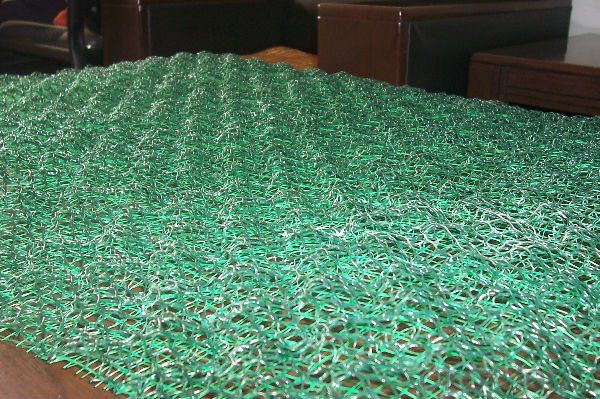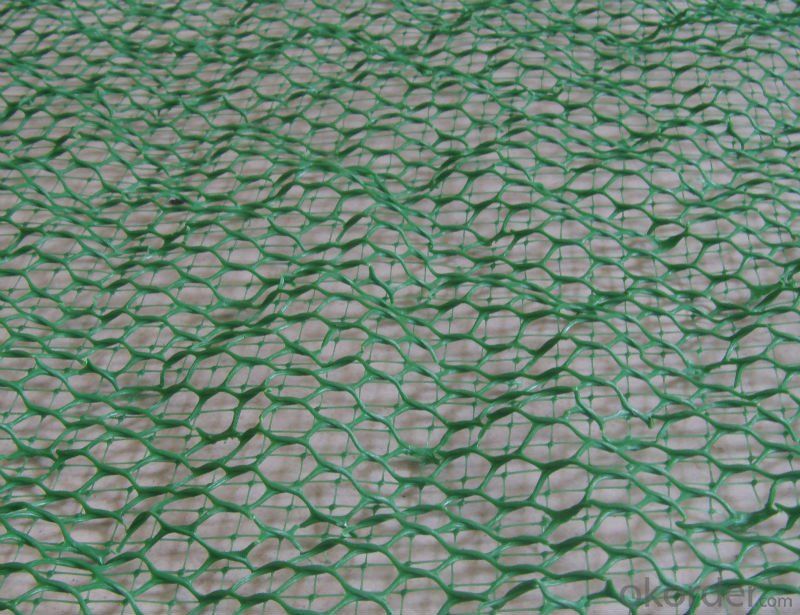Packaging & Delivery
| Packaging Details: | general packing or according to customer's requirement |
|---|---|
| Delivery Detail: | 7 days after receiving 30%T/T |
OKorder Service Pledge
OKorder Financial Service
You Might Also Like
Place of Origin:Shandong, China (Mainland)
color:black green and so on
weight:220g 260g 350g 430g
width:2.0m
| Packaging Details: | general packing or according to customer's requirement |
|---|---|
| Delivery Detail: | 7 days after receiving 30%T/T |
erosion control geonet
geomat
erosion control mat

Geomat is a new-typed seed planting material with tridimensional structure, which can effectively prevent the soil being washed away, increase the area of the virescence, improve the environment.
Application of Geomat
It can protect the ground surface being corroded before the turf is growing up, and fix the seeds.
The compound protection layer formed after the grass grows up can endure washing by high level and high speed water. It can be a substitute of the concrete, bitumen, stone etc to be the slope protection material. It has mainly been used in highway, railway, riverway, embankment, hillside etc.
erosion control geonet
geomat
erosion control mat
Standard Type(Slope Angle≤45°)
Art No. | PLC0201 | PLC0202 | PLC0203 | PLC0204 |
Item and Type | EM2 | EM3 | EM4 | EM5 |
Unit Weight≥(g/ m 2 ) | 220 | 260 | 350 | 430 |
Thickness≥(mm) | 10 | 12 | 14 | 16 |
Tensile Strength≥(kN/m) | 0.8 | 1.4 | 2.0 | 3.2 |
Width(m) | 2.0 | |||
High Tensile Strength Type(Slope Angle 50°- 90°)
Art No. | PLC0205 | PLC0206 | PLC0207 | PLC0208 | PLC0209 | PLC0210 |
Item and Type | QEM3 | QEM4 | QEM5 | |||
Tensile Strength ≥(kN/m) | 6 | 9 | 9 | 12 | 15 | 20 |
Elongation≤% | 10 | |||||

Send your message to us
OKorder Service Pledge
OKorder Financial Service
Similar products
Hot products
Hot Searches
Related keywords